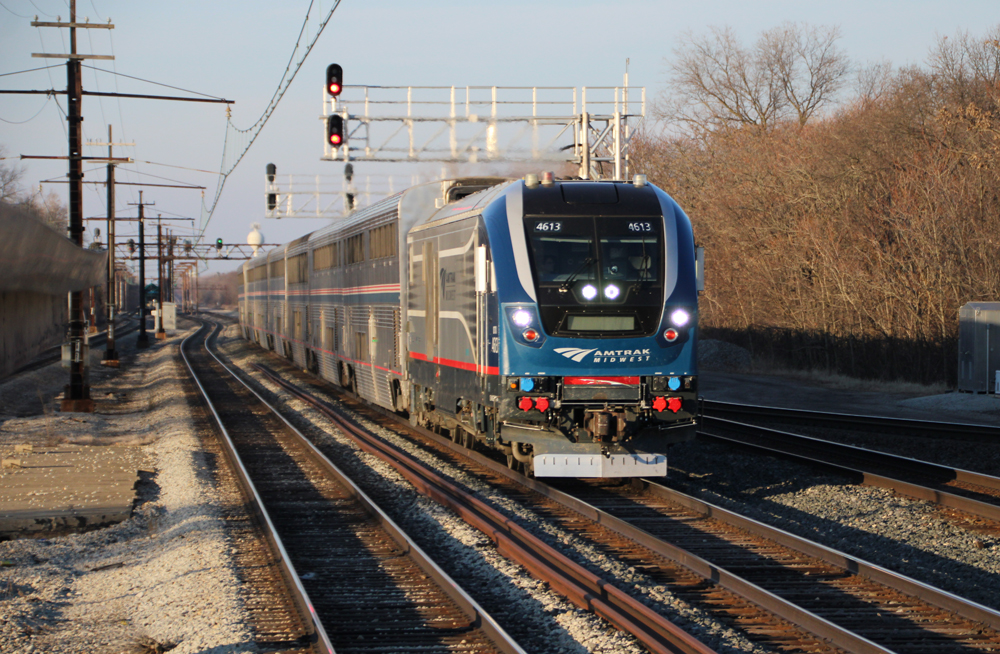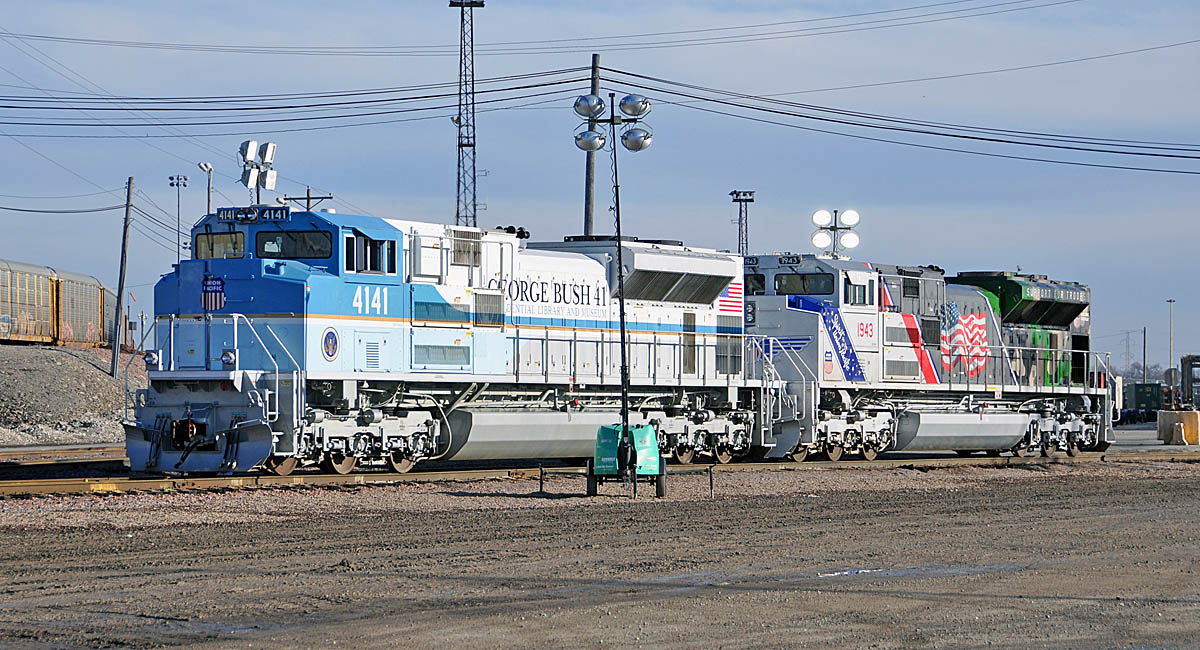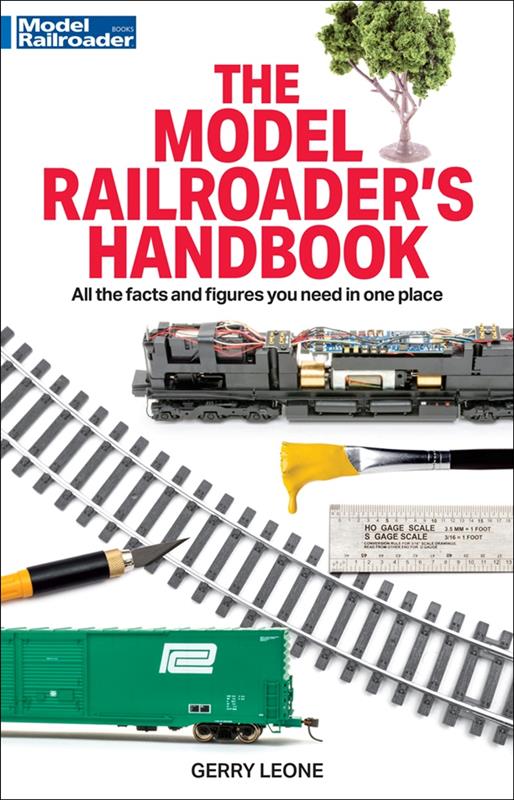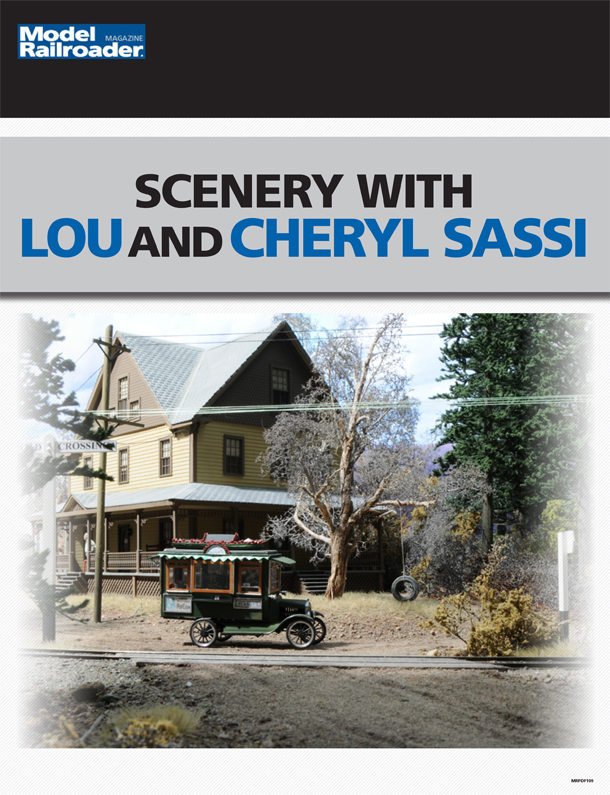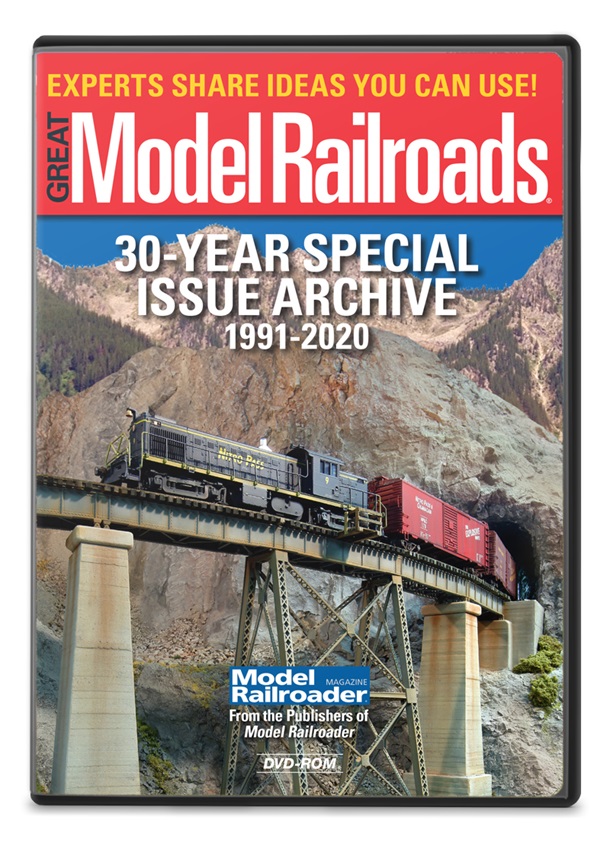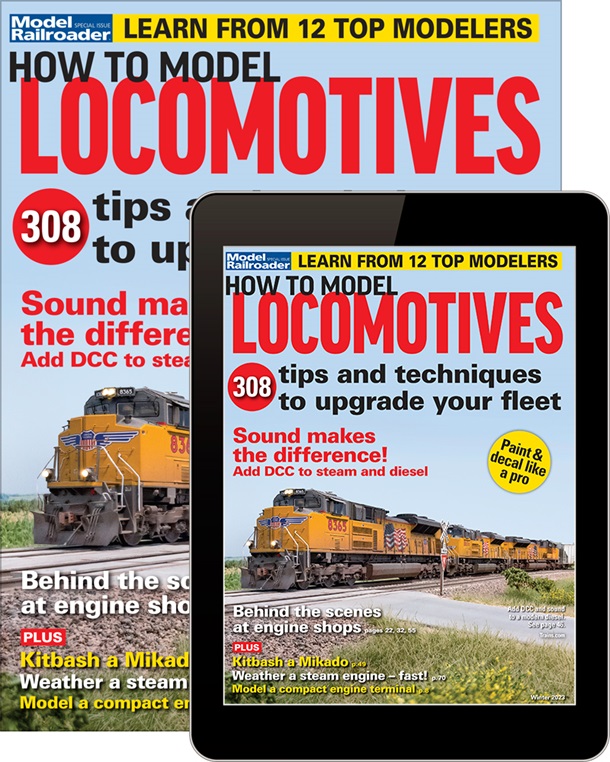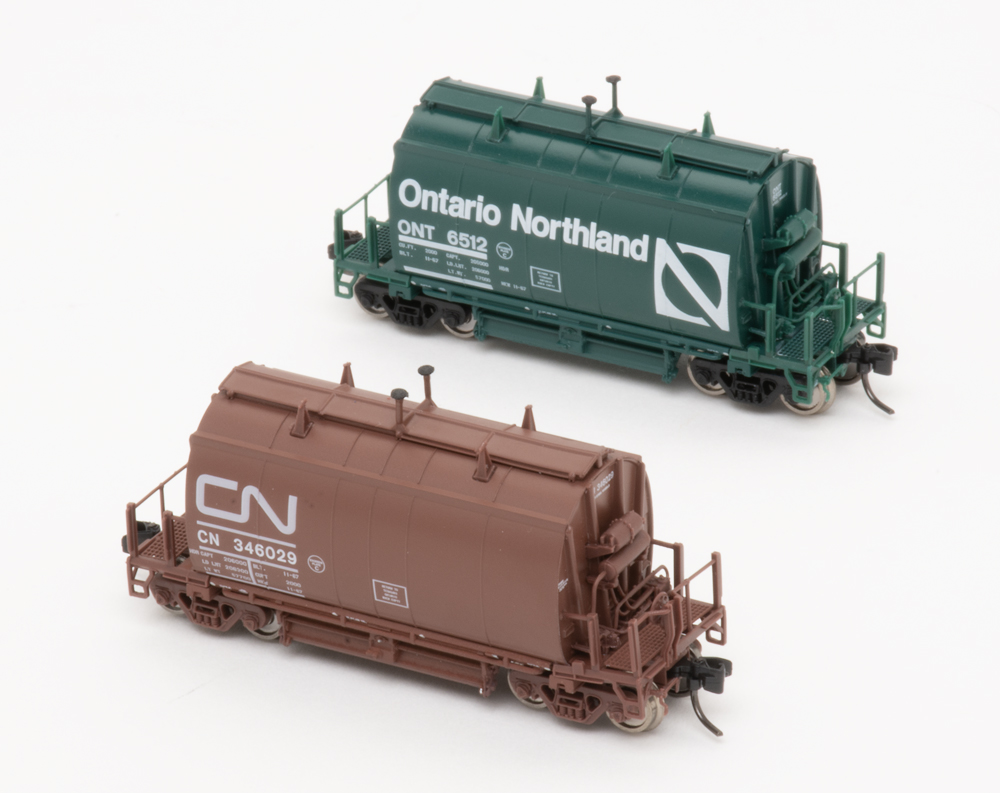
A National Steel Car short-barrel ore hopper has joined the growing N scale freight car lineup from Rapido Trains. The ready-to-run car has Barber S-2 100-ton trucks; 36” metal wheelsets; and see-through, etched-metal crossover platforms.
Prototype history
The samples we received are decorated as Canadian National 346029, from the railroad’s 346000 through 346084 series, and Ontario Northland 6512, part of the carrier’s 6500 through 6534 series. The 35-foot cars were built by National Steel Car in 1967.
The full-size short-barrel cars transported ore from mines in Dane and Temagami, Ont., to Dominion Foundries & Steel Co. in Hamilton, Ont. Cars from both railroads could be seen running together in unit trains operating between the mines and mill.
The tandem mines closed in 1990, and the ore hoppers were off the CN and ONT rosters by the mid-1990s. Some of the short-wheelbase hoppers found new lives as scale test cars and ballast hoppers.
Model features
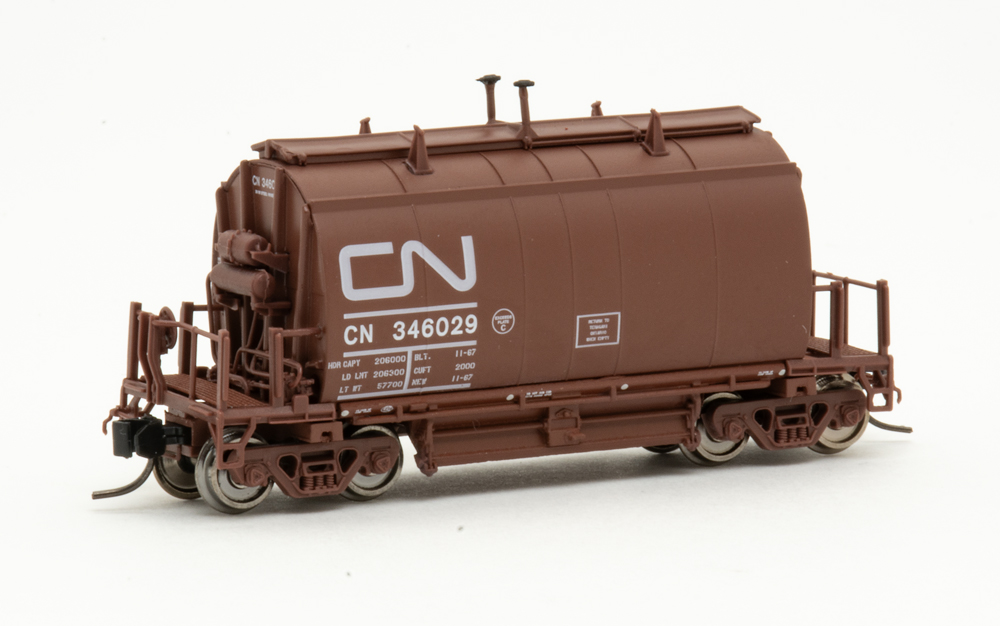
The Rapido N scale ore hopper has an injection-molded plastic body. The top of the model features longitudinal roof hatches and four door stops. At the middle of the hatches are two masts with the tires picked in black paint. On prototype cars, the tires contacted scrolls on overhead bins at the ore mines. This, in turn, opened the hatches in preparation for loading.
The end platforms are engineering plastic pieces glued to the die-cast metal frame. The grab irons, handrails, stanchions, and stirrup steps are molded; the plastic uncoupling levers are freestanding. See-through, etched-metal crossover platforms run the width of the car on both ends.
The B end of the car has plastic brake appliances and detailed piping molded to match the body color. The brake wheel is a separate, factory applied part.
Similar to the HO version, the underbody of the Rapido N scale barrel ore hopper is made up of multiple parts. The sills, floor, and outlet gates are die-cast metal. The center sills, body bolsters, bolster blocks, and draft-gear boxes are a single plastic casting. The draft-gear box covers are secured with Phillips-head screws.
Model vs. prototype
Both of our samples have smooth, evenly applied paint with all but the smallest lettering legible under magnification. The herald and data placement matches prototype images I found in books and online. The road name and herald on the ONT car are crooked, but this occasionally happens on full-size cars, too.
Drawings of the short-barrel ore hopper were published in the 1970 Car and Locomotive Cyclopedia of American Practice (Simmons-Boardman Publishing Corp.) The model closely follows the dimensions listed in the side and end elevation drawings.
The Barber S-2 100-ton roller-bearing trucks are molded in black on the ONT car and Mineral Brown on the CN model. The body-mounted knuckle couplers are at the correct height, and the 36” metal wheelsets are properly gauged. The hopper weighs 0.8 ounce, which is correct per National Model Railroad Association Recommended Practice 20.1.
I put the two short-barrel cars in a freight train on Milwaukee, Racine & Troy State Line Route layout. The cars ran without issue while being pushed and pulled in a mainline freight and during yard switching.
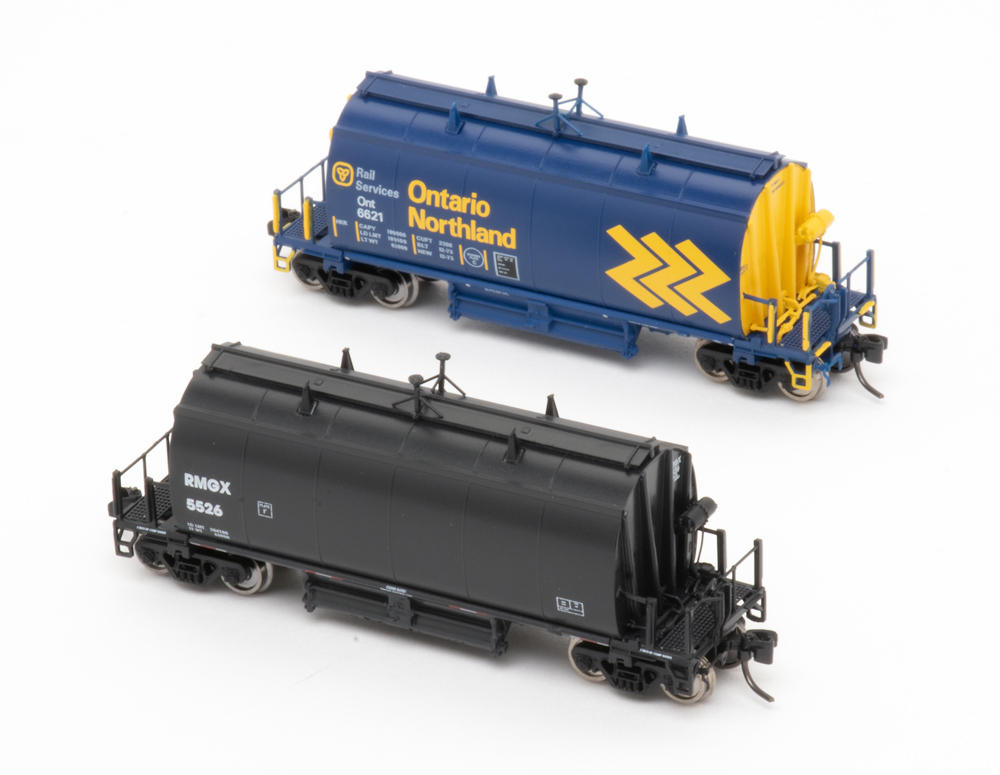
In addition to the short-barrel cars, Rapido offers long-barrel cars decorated for CN (Mineral Brown), ONT (Chevron scheme), The Andersons Inc. (black with RMGX reporting marks), GATX Capital (black with GACX marks), and GE Rail Services (black with NIHX marks). Though the short- and long-barrel ore hoppers started life in Canada, examples of the cars can be found throughout North America today.
Facts & features
Price: Single car, $42.95; three-pack, $128.85; six-pack, $257.70
Manufacturer
Rapido Trains
500 Alden Rd., Unit 21
Markham, Ontario, Canada
L3R 5H5
Era: 1967 to mid-1990s
Road names: Canadian National (Mineral Brown and Scale Test Car) and Ontario Northland (Progressive Green). Also available undecorated.
Features
- 36” metal wheelsets, correctly gauged
- Body-mounted plastic couplers, at correct height
- Minimum radius 9-3⁄4”
- Weight: 0.8 ounce, correct per National Model Railroad Association Recommended Practice 20.1







